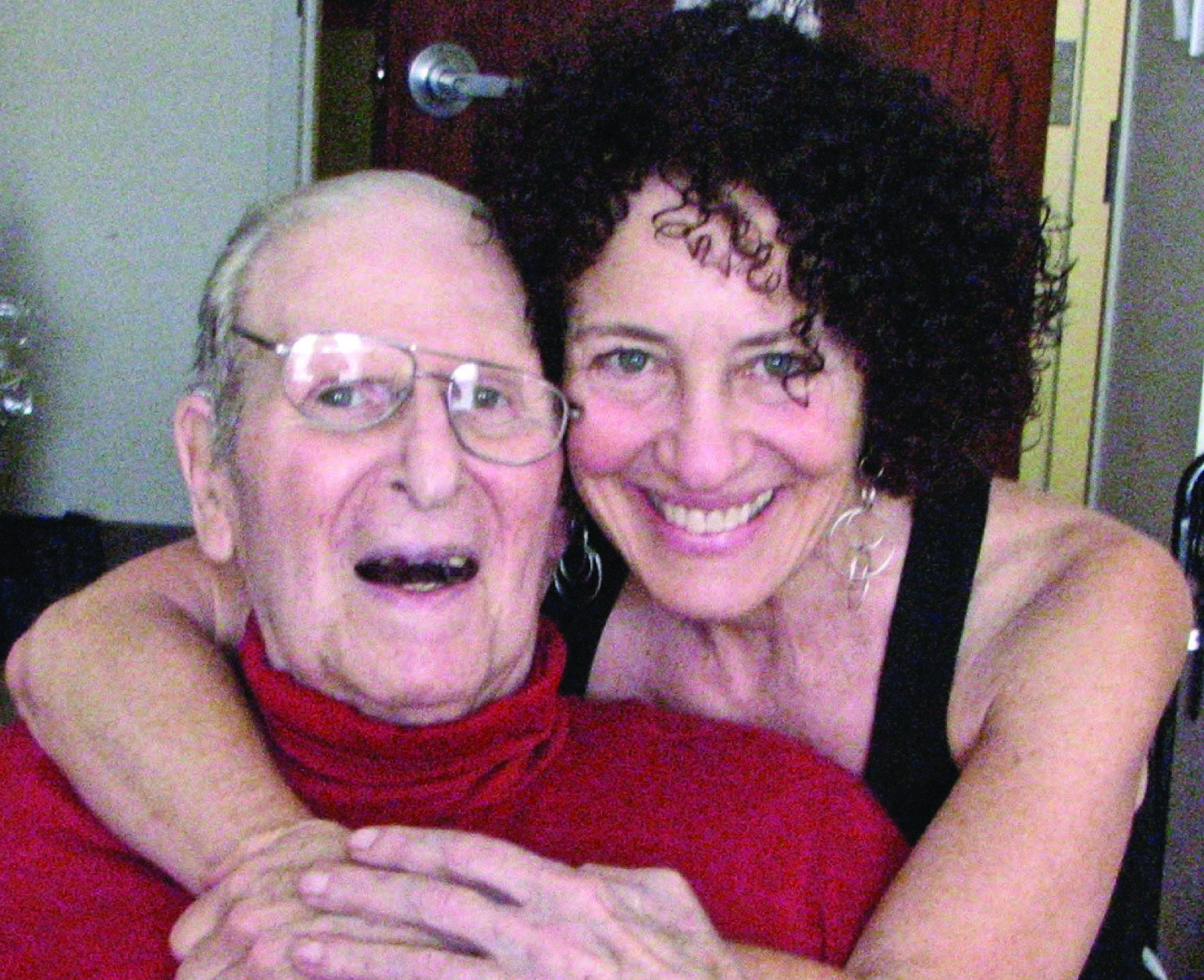
I recently trespassed on David Rockefeller’s estate in Maine. I blame my father. Dad was an adventurous man who preferred the road less traveled.
His influence explains how I searched for and discovered the perfect secluded cliffside trail, which I later learned belonged to the Rockefellers.
My deceased father was there in spirit, cheering me on.
My memories of Dad inspired me to ask some well-known Angelenos to share stories about their fathers.
Rabbi Laura Geller, Rabbi Emerita Temple Emanuel of Beverly Hills
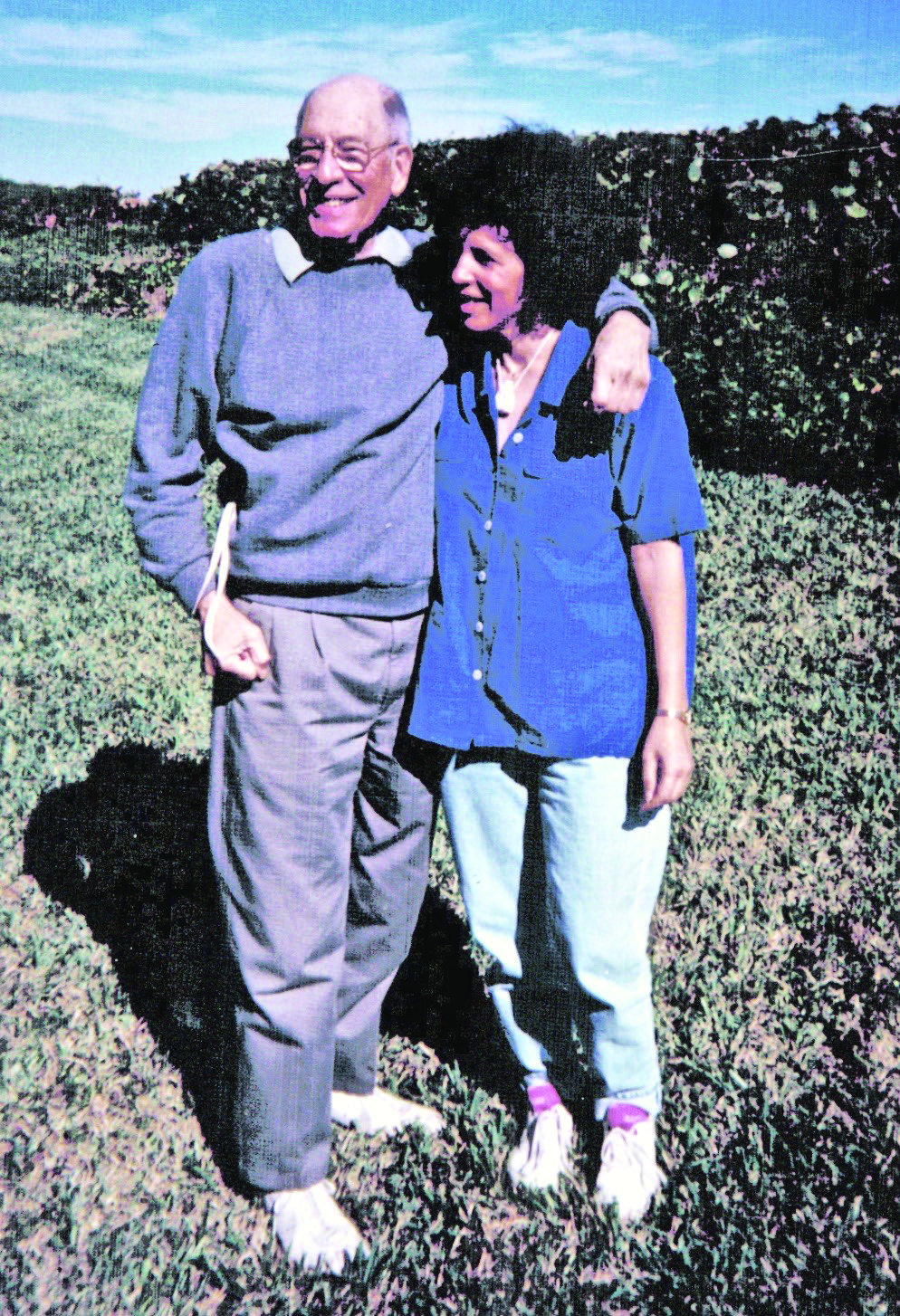 My father, Len Geller, grew up in New York. He was a very gentle soul who believed he was brought into the world to make other people’s lives easier, and that gave him comfort and purpose.
My father, Len Geller, grew up in New York. He was a very gentle soul who believed he was brought into the world to make other people’s lives easier, and that gave him comfort and purpose.
“My father believed that if people could really listen to each other, most of the evils of the world would disappear.” — Rabbi Laura Geller
When I was a child, my parents met with their synagogue’s social action committee. I snuck downstairs to listen and heard someone say they were “selling their home as a straw.” To me, a straw was something you drank chocolate milk with. My father explained that a straw was a white person who bought a house from another white person in order to sell it to a Black person, to help integrate housing. “I thought this was a Jewish meeting,” I said. “What does that have to do with being Jewish?” My father replied, “That is what it means to be Jewish.”
While in college, I had a conflict with my father, and he wrote to me, “There is nothing more important than our relationship. I’m coming to visit you this weekend so we can talk this problem through and resolve it.” We talked, and the crisis evaporated. I learned from my father the importance of being gentle and kind in intimate relationships. He believed that if people could really listen to each other, most of the evils of the world would disappear.
Zev Yaroslavsky, former L.A. County Supervisor
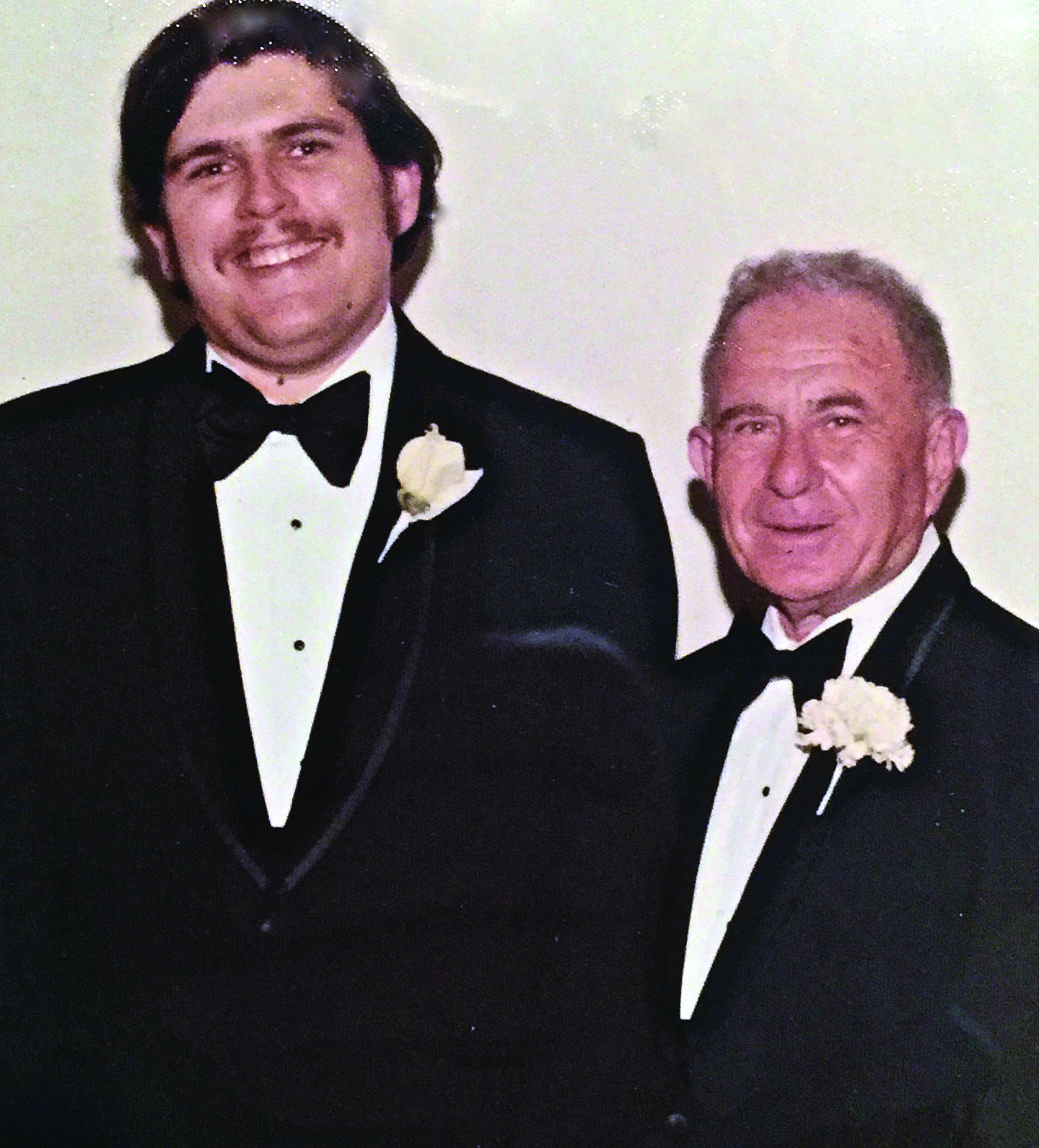 My father, David Yaroslavsky, came from Ukraine to New York and eventually to Boyle Heights, where I grew up. He taught at Hebrew High and was a founder of the Hebrew Teachers Union here.
My father, David Yaroslavsky, came from Ukraine to New York and eventually to Boyle Heights, where I grew up. He taught at Hebrew High and was a founder of the Hebrew Teachers Union here.
He was an avid reader, and not at all into sports. Nevertheless, for Father’s Day in 1959, I gave him two tickets to the Major League Baseball All-Star Game at the Coliseum. Despite the fact that Mickey Mantle, Yogi Berra and Ted Williams were playing, my father had no interest in the game. He brought all four of his Yiddish newspapers to read. While 99,000 people were cheering the game, my father sat, his head down, reading his Yiddish newspapers.
My father had a great influence on me. He was both ideological and pragmatic, which I’d like to think I am. We didn’t always agree on politics, and I honed my debating skills with him at the Shabbat dinner table.
He was 70 when he died suddenly in 1973. You think they’re going to be there forever, and I thought I’d have more time with him.
Ron Meyer, vice chairman of NBC Universal
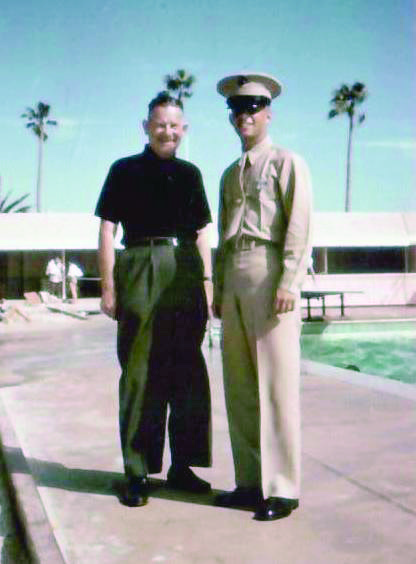
My father, Edward Meyer, grew up in Berlin. In 1938, he escaped and was penniless when he arrived in America.
He was a great father and friend, and hard working. He sold ladies’ dresses in towns across Arizona, California and Washington, traveling five out of six weeks. We never had any money. When he was home, he wasn’t on vacation. He still worked. It was a grueling lifestyle.
After I dropped out of school at 15, I sometimes drove my father on sales trips. He could not have worked any harder than he did. When he made a commitment, he kept it. He treated people the way he wanted to be treated. I hope I learned these things from him.
My father worried about me endlessly. When I was in the Marines, he worried that I’d be shot. When I dropped out of school, he worried about how I’d make a living. He lived long enough to see me in a coat and tie, working at William Morris. He was very relieved that I was on the road to something.
Sharon Nazarian, Anti-Defamation League senior vice president, and Younes and Soraya Nazarian Family Foundation president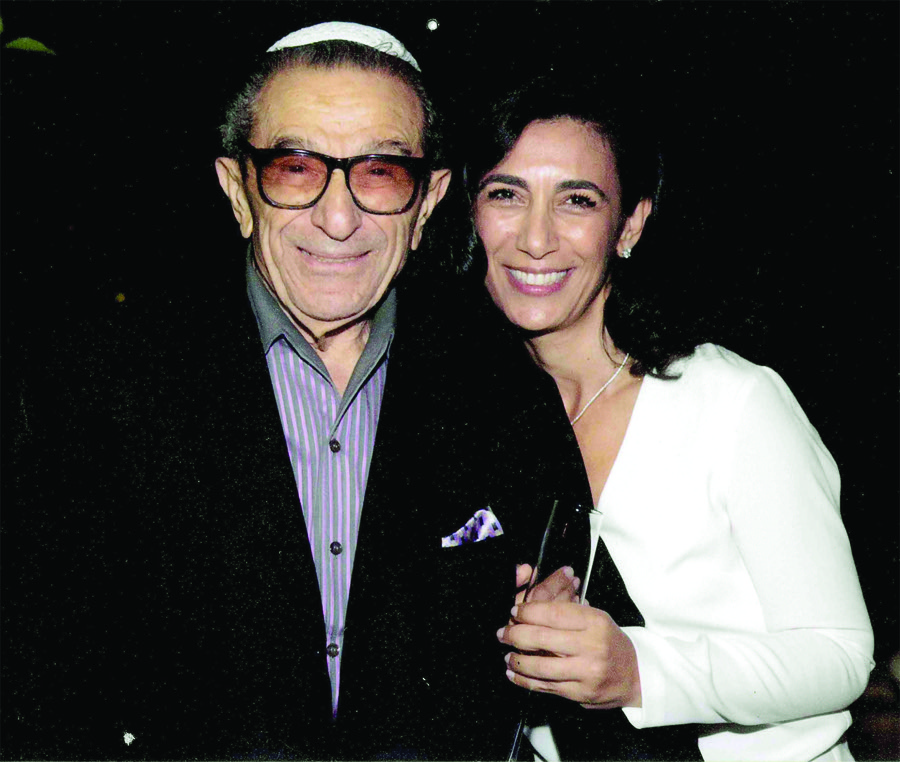 My father, Younes Nazarian, is 87. He was born in Tehran, as was I. My father experienced tremendous anti-Semitism in Iran, as a child and later as a businessman. We left in 1978, lived in Israel for six months, and moved to Los Angeles in 1979.
My father, Younes Nazarian, is 87. He was born in Tehran, as was I. My father experienced tremendous anti-Semitism in Iran, as a child and later as a businessman. We left in 1978, lived in Israel for six months, and moved to Los Angeles in 1979.
My father lost his own father when he was 3 years old. He was raised by his mother, who was a feminist and not bound by the norms of Persian culture.
He was very engaged with his children in an Iranian-Jewish culture where that was the role of only the mother. He played an important role in nurturing and shaping his two daughters and two sons, raising us to be confident and self-assured. In his successful business, he often had international visitors for dinner, and we children were invited to join them. In the Iranian culture, children were not to be heard or seen, but during my father’s conversations with his guests he would ask our opinions. This left an important mark on all of us, instilling the idea that our opinions mattered.
Knowing about the anti-Semitism that my father experienced in Iran is intimately interwoven in my career of looking at anti-Semitism in the world today. My father has been a role model for me — my North Star. I hold him and his life story as a guiding light for me.
Ellie Kahn is an oral historian and documentary filmmaker.























 More news and opinions than at a Shabbat dinner, right in your inbox.
More news and opinions than at a Shabbat dinner, right in your inbox.